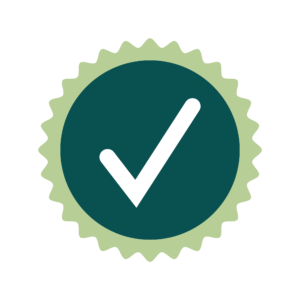How to Start a Coaching Business
Becoming a professional coach is like stepping into a world of endless paths and possibilities. Whether you’re driven by a desire to inspire, guide, or empower others, a coaching business offers not only immense opportunity for personal growth, but the autonomy and flexibility that come with owning a business. To succeed requires a blend of coaching expertise and business acumen.
Whether you’re a seasoned coaching professional aspiring to establish your own practice or exploring coaching as a new career, this guide will take you through the process step by step, arming you with the essential knowledge, courage, and confidence you need to launch your career and build a successful coaching business.
Download your free Coaching Business Plan Sample + Template
Download Now
Please fill out this form to receive your free Coaching Business Plan Sample + Template in your email inbox.
Step 1: Identify Your Coaching Niche
By deciding to launch a coaching business, you’ve already done the hard part. Now it’s time for the fun stuff, like deciding what kind of coach you want to be.
Choosing to specialize in a specific coaching discipline will differentiate you as a coach and allow you to focus your time, energy, and effort on developing deep expertise in one area. This is where your passion meets your purpose.
When your niche aligns with what you care most about and where you focus your own professional development, your effectiveness as a coach skyrockets, ensuring authenticity and longevity in your coaching career. You can choose from many specializations, such as leadership coaching, team coaching, life coaching, executive coaching, career coaching, performance coaching, and myriad other disciplines.
Selecting a niche for your coaching business also helps you connect with clients who are seeking an expert in your field of choice. Just as you wouldn’t hire an electrician to fix a leaky faucet, someone looking for a career coach won’t hire a home organizer. By defining your coaching niche, you will stand out when someone is seeking what you offer.
When defining your niche, ask yourself two key questions:
- Whom are you going to help?
Consider the specific groups of people or types of individuals you feel most called to serve.
- How are you going to help your clients?
Identify the challenges or goals your coaching will address.

Keep in mind, your niche is not a box meant to confine you. It’s a starting point from which you will grow, adapt, and refine your business and expertise. As you delve deeper into your coaching practice, stay open to evolving your focus based on the shifting landscapes of both your interests and the challenges your clients face. This is the beauty of coaching—it’s a journey of continuous discovery and adaptation.
Step 2: Gain Coaching Expertise
Unlike many careers, claiming the title of “coach” doesn’t require meeting specific educational standards. Nevertheless, the most effective and successful coaches often pursue rigorous training and certification programs to enhance their skills and credibility, and to ensure that they’re providing the highest value to their clients. Good students make great coaches, and great coaches are lifelong learners. Several options are available when it comes to obtaining the necessary expertise to help your practice thrive.
Select a Reputable Coach Training Program
Choosing the right coach training program is crucial for acquiring the skills and knowledge necessary to be an effective coach and lay the foundation for your overall success. Look for programs that offer a blend of theoretical knowledge and practical experience, and make sure they are accredited by a recognized governing body, such as the International Coaching Federation (ICF), which ensures high educational standards. Consider the program’s curriculum, the qualifications of the instructors, and feedback from former students.
Earn Advanced Certifications Through CCE
Continuing coach education (CCE) is a valuable addition to your initial coach training. While not mandatory, taking workshops and courses that offer CCE credit can provide advanced training and a deeper understanding of both new and established coaching methodologies or tools, significantly benefiting your practice. In addition, continuing education often comes with certifications which can bolster your credibility and help distinguish you from other coaches.
Depending on your niche, you may find the following certifications to be a valuable addition to your repertoire:
Leadership Coaching Certifications
At Leadership Circle, we offer ICF-accredited leadership assessment certifications which enable coaches to leverage our advanced leadership assessment tools in their practice. We empower coaches with a statistically valid framework for understanding and developing leadership effectiveness in their clients. Leadership development coaching is useful in a variety of coaching disciplines, including executive coaching, performance coaching, personal development coaching, team coaching, career coaching, and success coaching, to name a few.
Career Coaching Certifications
For those interested in career coaching, Career Shift’s certification program equips coaches with the tools, techniques, and insights required to facilitate meaningful career transitions and to help clients achieve professional growth.
Resilience Coaching Certification
If you’re looking to help people cope with difficult situations and bounce back from adversity, you may benefit from The Leadership Wellness Group’s Certified Resilience Coach Program. This program immerses coaches in a 12-week curriculum grounded in evidence-based principles and best practices for cultivating resilience and well-being within their clients.
“I see a lot of coaches try to start out without investing in coach training or their business and they struggle. Invest, invest, invest!!”
Jenn LofgrenExecutive & Leadership Coach
Step 3: Set Up Your Business Framework
Coaching expertise will only take you so far. Starting a successful coaching business requires business savvy, but don’t worry; you don’t need an MBA to launch your operation. We’ll cover the essentials to help you navigate the business side of your coaching practice with ease.
Draft Your Business Plan
Every journey needs a roadmap, and a business plan is just that for your coaching practice. Even if you don’t have all the answers right now or haven’t finalized every decision you need to make, creating a plan is an essential step forward in starting your coaching business.
Your business plan should outline foundational concepts, like how your coaching practice will operate, how you’ll generate revenue, and how you’ll deliver value to your clients. The plan will help guide your decision-making and provide you with strategic direction. Key to its success is making the plan flexible. You must be ready to evolve as you gain insight and experience being a business owner.
Your business plan can be as simple or complex as you wish, and there’s no right or wrong way to do it. At this stage, a streamlined, simple “startup plan” will suffice.
To get you started, be sure to include the following key elements in your coaching business plan:
- Value Proposition: What unique value does your coaching business bring to the market that differentiates you from competitors?
- Target Audience: Think back to your niche. What specific groups or individuals are you going to serve?
- Revenue Streams: How will your coaching business earn money? For example, will you offer one-on-one coaching sessions, development programs, packages, workshops, consulting services, etc.?
- Channels: How do you intend to reach and connect with potential clients? Will you create an online presence, rely on word-of-mouth referrals, attend expos, or leverage a mix of strategies?
- Key Partnerships: Do you plan to work with partners to help your coaching business run effectively? For instance, will you be working with other coaches or specialists to whom you can refer your clients if they need to address specific needs outside your expertise?
- Customer Relationships: How will clients be able to communicate with you? Will you offer in-person or virtual coaching sessions? Can clients reach you via text? How will you keep track of your clients and their history? What about billing software and invoicing?
- Key Activities: What essential activities will your coaching business conduct to operate successfully?
- Key Resources: What critical assets are required to deliver your coaching services?
- Costs: What costs are involved in operating your coaching business?
Choose Your Business Structure
When starting a coaching business, you’ll need to decide on the type of legal structure under which your business will operate. Options include sole proprietorship, partnership, corporation, and Limited Liability Company (LLC). Each structure offers distinct advantages and disadvantages, so you’ll want to research which is best suited for your needs.
Select & Register Your Business Name
Selecting a name for your coaching business is an important step in establishing your brand identity. It is often your clients’ first impression of you, and a well-chosen name not only differentiates you in the marketplace but also resonates with your target audience. It should be memorable and give potential clients some indication of what you do or your specialty. Depending on your location, you may be required to register your business name. Usually this is done when you apply for a business license (see below) but can be done separately.
Obtain an Employer Identification Number (EIN)
Depending on the legal structure you’ve chosen for your business, you may be required to obtain an employer identification number (or EIN). An EIN is a unique, nine-digit number assigned to businesses by the Internal Revenue Service (IRS) that helps facilitate tax filings, bank account openings, and more. If you’ve chosen a sole proprietorship or single-owner LLC without employees, you should have the option to use your Social Security Number in lieu of an EIN.
Apply for a Business License or Permit
While there may not be any legal requirements for calling yourself a coach, you may be required to obtain a business license or permit, depending on your location and the nature of your coaching services. Be sure to research the requirements in your area to ensure compliance. Visit your state’s official government website to find out which permits and licenses you may need.
Step 4: Set Up Your Operational Framework
Once you’ve addressed the “what” side of starting a coaching business by setting up your business framework, it’s time to focus on the “how.” Your operational framework encompasses many of the day-in and day-out administrative tasks of being a business owner.
Infrastructure
Decide on the logistics of where and how you’ll conduct coaching sessions. Whether you choose in-person, online, or hybrid sessions will influence your technology needs, office space, and how you interact with your clients.
Payment Processing
Opening a business bank account, pricing your services, and setting up a payment processing system are essential for your coaching business to operate effectively. Your pricing structure should reflect the value you provide while remaining competitive. There are myriad options out there for payment processing, but some of the best include Square and Stripe.
Client Relationship Management
Adopting a Customer Relationship Management (CRM) system will be pivotal for efficiently organizing client information, including intake forms, session and progress notes, communication history, upcoming appointments, and more. By leveraging CMS personalization, a robust content management system can automate essential processes, such as scheduling appointments, sending appointment reminders, and distributing feedback surveys.
Online Scheduling
If your chosen CMS doesn’t satisfy your online scheduling requirements, you’ll want to implement a dedicated appointment scheduling system. Scheduling platforms, like Calendly or Acuity, can streamline the booking process for clients, allowing them to schedule sessions based on your availability. These tools often integrate with personal calendars to prevent double bookings and dispatch automated reminders to minimize cancelations.
Video Conferencing
If you plan to offer virtual coaching sessions, you’ll want to select a reliable video conferencing platform for hosting these engagements. Popular options include Microsoft Teams, Google Meet, or Zoom, to name a few.
Step 5: Set Up Your Coaching Framework
The final step in starting a coaching business is defining, creating, and adopting the practices that will make the business your own.
Explore Coaching Methodologies and Tools
A coaching methodology refers to the governing principles, strategies, and techniques that coaches employ to guide their coaching sessions and overall practice. Coaching methodologies are grounded in various psychological theories, educational philosophies, and behavioral sciences, and they serve as the foundation for how coaches interact with clients, structure their sessions, and facilitate client growth.
If you completed a coach training program, you certainly will have been exposed to some coaching methodologies already. The value in exploring a variety of methodologies is that it broadens your understanding of the many and diverse approaches to coaching available to you. Being versed in multiple methodologies enhances your flexibility, allowing you to switch approaches or blend elements from different methodologies to address the specific challenges, preferences, and goals of each client. When you tailor your approach to your client and their needs, you can deliver more effective coaching solutions.
Furthermore, utilizing coaching assessment tools that align with your methodology can help unlock deep insights and development opportunities that may not otherwise be apparent, paving the way for breakthroughs and transformative change.
Establish Systems & Processes
Creating efficient systems and processes is crucial for the smooth operation of your coaching business, ensuring you provide consistent, high-quality services to your clients. From the initial consultation to onboarding and service delivery, each step should be thoughtfully designed to create a seamless and impactful client experience. Put yourself in your clients’ shoes and try to create processes that make your services accessible to all who seek them.
Some of the procedures you may want to consider include:
Consultation Process
Your initial consultation is the cornerstone of the client-coach relationship and enables both parties to assess compatibility and set the tone for future sessions. It’s an opportunity to build rapport, understand what success looks like to your potential client, introduce your coaching style and methodology, and determine whether your approach aligns with the client’s aspirations. Remember, the goal is to make clients feel understood and confident in your ability to help and provide value.
Onboarding Process
The onboarding process in coaching marks the transition from potential client to active client. This time is best spent setting clear expectations, establishing a solid framework for communication, and taking the initial steps to formalize the client-coach relationship. Your onboarding process will be unique, depending on the nature of your coaching business, but may include:
- Coaching Contract: Outlines the scope of services, expectations, and any terms and conditions to ensure both client and coach are aligned from the start.
- Pre-Coaching Questionnaire: Used to gather detailed information about your client to establish a baseline for the coaching engagement and helps tailor your coaching approach to the client’s unique situation.
- Communication and Meeting Preferences: Defines how and when coaching sessions will take place and the preferred channels of communication.
Coaching Plan Development
Your coaching plan is the culmination of how you’ll apply your coaching expertise, methodologies, and tools to address your clients’ needs effectively. This process will be highly customized based on the individual needs of each client, yet it is anchored in several core practices, regardless of context:
- Needs Analysis – Where is your client now?
Relative to the client’s aspirations or expressed needs, how do they currently measure? What is their benchmark? Depending on the nature of the coaching engagement, assessment tools may prove valuable for honing in on the areas that need the most work. This might include leadership assessments, personality assessments, or values clarification exercises.
- Goal Setting – Where does your client want to be?
Goal setting is a pivotal phase in the coaching process, serving as the bridge between the current state of your client and the desired outcomes they wish to achieve.
- Action Plan – How will you help your client get there?
This involves breaking down large goals into smaller, actionable steps and setting timelines for achievement. This plan should be flexible and adapt to your client’s progress and any arising challenges.
- Progress Monitoring – How will you measure and monitor success?
Progress monitoring involves establishing clear indicators for success and utilizing regular check-ins to assess a client’s advancement toward their goals, adjusting the action plan as needed. This ensures continual alignment with your client’s evolving goals and maintains momentum toward achievement.
Feedback & Refinement
The best coaches benefit from regular feedback. Establish a feedback mechanism for your clients to share their thoughts on the coaching process and the progress toward their goals. Use this feedback to refine your approach, adjusting when needed to better meet your clients’ needs.
Client Retention
Establish a process to maintain client engagement between coaching sessions. This could be through regular check-ins, brief calls, or text messages. Personalizing your follow-ups ensures clients feel supported and valued throughout the coaching process. This approach not only keeps the momentum going but also strengthens the coach-client relationship, fostering a client’s deeper commitment to their goals.
Starting a coaching business is as much an entrepreneurial endeavor as it is a voyage of personal development—not only for you but for the clients whose lives you’ll touch. It represents the intersection of professional ambition and the profound commitment to empowering others to achieve their goals. This venture demands resilience, adaptability, and a deep understanding of human potential. With the insights provided here, you’re well-equipped to start building a coaching business that not only achieves professional autonomy but also creates lasting impact.
Featured Insights
In order to further your journey toward starting a successful coaching business, we’ve asked accomplished entrepreneurs and coaches with years of experience to lend their wisdom. Below are some of their key insights.
Top Advice When Starting a Coaching Business
“Treat your coaching business like a business. If you were starting any other business you would put significant investment into it including the systems, processes, marketing etc required. Invest in those things up front and continue to do so as you learn more about your business. And, invest in your personal development every year by taking a coaching course, a business acumen program, facilitation, and other modalities to round out yourself as a professional. We help accelerate the development of others and can only do so if we accelerate our own personal and leadership development.”
Jenn Lofgren CPHR | MCC | ICD.DExecutive & Leadership Coach | Forbes Coaches Council | Canada’s Top 100 Most Powerful Women
Related Content
Is Launching a Coaching Business The Right Thing For You?
If you’re contemplating whether or not to start a coaching business, but aren’t sure where to start, Kathy Caprino covers this topic at length in her article ‘Is Launching a Coaching Business The Right Thing For You Now? Here’s what to Consider‘. Drawing from her own experience transitioning from a corporate VP to an internationally recognized career and leadership coach, Kathy provides valuable guidance to help you assess your readiness for a career shift into coaching. Through thought-provoking prompts drawn from first-hand experience, Kathy guides readers to explore key considerations that could determine your success in this entrepreneurial endeavor, helping you make an informed decision.
How to Get Coaching Clients
Once you’ve established your business foundation, the next vital step to a successful coaching business is marketing your services and growing your client-base. In our blog ‘How to Get Coaching Clients | 6 Winning Strategies,’ we explore expert insights & practical marketing advice that cuts through the noise and connects you with your ideal clients authentically. These strategies build on the foundation you’ve laid, empowering you to finally turn your passion into profit.
Download your free Coaching Business Plan Sample + Template
Download Now
Please fill out this form to receive your free Coaching Business Plan Sample + Template in your email inbox.







Thanks for you share